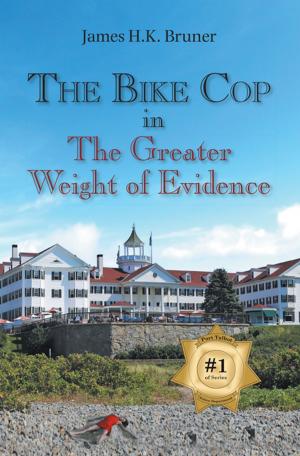Menno Simons
Dutch Reformer Between Luther, Erasmus, and the Holy Spirit a Study in the Problem Areas of Menno Scholarship
Nonfiction, Religion & Spirituality, Theology, Reference & Language, Reference, History| Author: | Abraham Friesen | ISBN: | 9781503562837 |
| Publisher: | Xlibris US | Publication: | May 16, 2015 |
| Imprint: | Xlibris US | Language: | English |
| Author: | Abraham Friesen |
| ISBN: | 9781503562837 |
| Publisher: | Xlibris US |
| Publication: | May 16, 2015 |
| Imprint: | Xlibris US |
| Language: | English |
In 1962, the Reformation scholar Hans Hillerbrand said the following of Menno Simons: For the past four hundred years he (has been) a man with a bad presscriticized not only by all of his foes outside his tradition, but also by many of his friends within. Outsiders accused him of, at the very least, sympathizing if not actively supporting the revolutionaries involved in the notorious Mnster uprising of 15341535, the jihadists of the sixteenth century. Many insiders, at first fearful that this might indeed be the case, sought early to distance themselves from him, calling themselves Doopsgezinde rather than Mennists. Later, other insiders, having moved beyond Menno theologically under the influence of the Enlightenment and Rationalism, criticized him for being overly dogmatic and narrow-minded. Only a few pietists like Jung Stilling and pietistically influenced Dutch Mennonites like Johannes Deknatel, together with the occasional Baptist scholar like J. Newton Brown, spoke highly of him. Indeed, the latter said of Menno: But there stood one among them (the great reformers) whom they knew not; who was greater than theymore truly eminent in the likeness of their common Lord. In a first section, this study begins with a chapter on the problem of reform in the sixteenth century. A second section on the 15341535 Mnster uprising that has so bedeviled Menno historiography follows. Both sections seek to recreate, at least to a degree, the larger context of Mennos life and activity and free him from the prejudices of the past. It does so by making the casenot made heretoforethat Menno was powerfully influenced, not by the revolutionaries, but by the two intellectual giants of the age: Martin Luther and Desiderius Erasmus. But the study also takes seriously Mennos repeated assertion that he had experienced a life-transforming conversion through the power of the Holy Spirit in early 1535. With this as background, the study then investigatesin a chronological sequencethe key problem areas of Menno scholarship that have arisen over the years. It concludes with a brief assessment of his legacy.
In 1962, the Reformation scholar Hans Hillerbrand said the following of Menno Simons: For the past four hundred years he (has been) a man with a bad presscriticized not only by all of his foes outside his tradition, but also by many of his friends within. Outsiders accused him of, at the very least, sympathizing if not actively supporting the revolutionaries involved in the notorious Mnster uprising of 15341535, the jihadists of the sixteenth century. Many insiders, at first fearful that this might indeed be the case, sought early to distance themselves from him, calling themselves Doopsgezinde rather than Mennists. Later, other insiders, having moved beyond Menno theologically under the influence of the Enlightenment and Rationalism, criticized him for being overly dogmatic and narrow-minded. Only a few pietists like Jung Stilling and pietistically influenced Dutch Mennonites like Johannes Deknatel, together with the occasional Baptist scholar like J. Newton Brown, spoke highly of him. Indeed, the latter said of Menno: But there stood one among them (the great reformers) whom they knew not; who was greater than theymore truly eminent in the likeness of their common Lord. In a first section, this study begins with a chapter on the problem of reform in the sixteenth century. A second section on the 15341535 Mnster uprising that has so bedeviled Menno historiography follows. Both sections seek to recreate, at least to a degree, the larger context of Mennos life and activity and free him from the prejudices of the past. It does so by making the casenot made heretoforethat Menno was powerfully influenced, not by the revolutionaries, but by the two intellectual giants of the age: Martin Luther and Desiderius Erasmus. But the study also takes seriously Mennos repeated assertion that he had experienced a life-transforming conversion through the power of the Holy Spirit in early 1535. With this as background, the study then investigatesin a chronological sequencethe key problem areas of Menno scholarship that have arisen over the years. It concludes with a brief assessment of his legacy.















